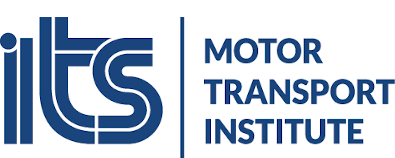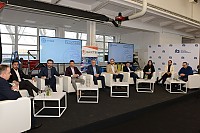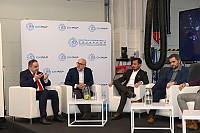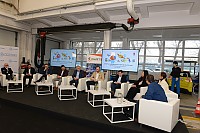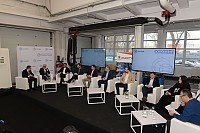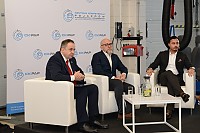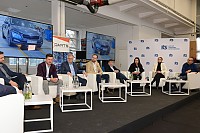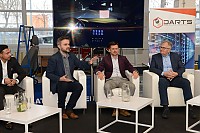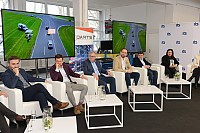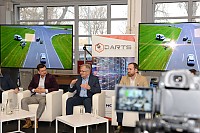Autonomous vehicles: a revolution in transport?
On February 22, 2024, an expert debate was organized at the headquarters of the Motor Transport Institute, entitled: "Social, economic and technical challenges of autonomous road transport". The panelists represented various business sectors, and a representative of the Ministry of Infrastructure also took part in the meeting. The debate was led by: Director of the Motor Transport Institute and Head of the Competence Centre for Autonomous and Connected Vehicles, prof. engineer Marcin Ślęzak, Ph.D. and the President of the Mikromakro Institute Foundation, Sławomir Kosieliński.
According to experts, autonomous vehicles (AV) will revolutionize transport, offering greater efficiency, comfort and safety. AV control algorithms are constantly tested, and the cars themselves do not suffer from fatigue or distraction, which eliminates the main human factors leading to accidents.
However, AV development comes with some challenges. It is important to be transparent about decision-making by artificial intelligence (AI) in AV systems and to develop ethical laws that help avoid difficult situations in real road traffic conditions.
Experts also believe that social acceptance is crucial for the development of AVs. The same goes for education about how self-driving vehicles work and their benefits. It was also noted that robotic vehicles could be seen as a panacea for transport problems such as traffic jams and the shortage of professional drivers, and could also provide greater mobility for older and disabled people.
For this to happen, AV development must be sustainable and take into account the needs of all users, ensuring accessibility regardless of socioeconomic status.
It is also necessary to adapt infrastructure and regulations at European and national level to the needs of AV through, among the others, changes in the Road Traffic Law or the Vienna Convention. It should also be emphasized that some road traffic regulations constitute a significant obstacle to the development of the latest technologies supporting drivers in Poland. Companies operating in the automotive industry are demanding changes in the law to enable testing of new solutions. According to the panelists, currently testing autonomous vehicles on roads is practically impossible.
The answer to some of the above-mentioned demands is, among the others: DARTS-PL project, being implemented since December 2022 by a consortium consisting of the Motor Transport Institute and the Warsaw University of Technology. The aim of the project is to develop an original database of test scenarios for autonomous vehicles (AV), taking into account road conditions typical of Poland. The database will constitute the basis for the design, creation, testing and evaluation of L3-L5 vehicle perception systems according to SAE J3016.
To sum up, the debate on autonomous vehicles showed the enormous potential of this technology, but also drew attention to the challenges associated with its responsible development.
Debate speakers:
- Sławomir Lewandowski (Ministry of Infrastructure)
- Marcin Szydełko (GlobalLogic)
- Andrzej Gontarz (Mikromakro Institute Foundation)
- Elżbieta Mrozek (Institute of Aviation)
- Aleksandra Auleytner (DZP Solicitors)
- Leszek Leśniak (Panek Carsharing)
- Tomasz Mucha (Mercedes-Benz)
- Andrzej Gemra (Renault)
- Zeeshan Naeem (ZF)
Organizers:
- Motor Transport Institute
- Competence Centre for Autonomous and Connected Vehicles ITS
- Mikromakro Institute Foundation
